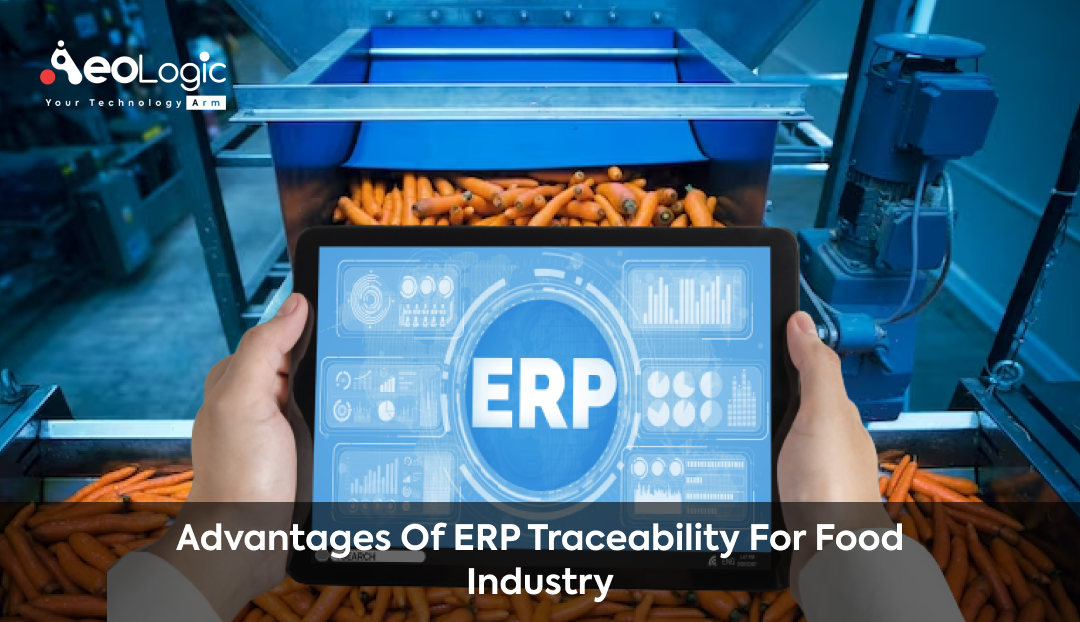The food industry is a complex network of suppliers, manufacturers, distributors, and retailers. Ensuring the safety and quality of food from farm to fork is not just a matter of compliance but a crucial responsibility. This is where Enterprise Resource Planning (ERP) traceability for the food industry comes into play, offering a multitude of benefits that can revolutionize the way the food industry operates. Let’s chew over these ten advantages that make ERP traceability a must-have for food businesses.
Why is ERP Important in the Food Industry?
The food industry is a bustling global marketplace where efficiency, compliance, and quality are paramount. ERP, or Enterprise Resource Planning, acts as the central nervous system for food industry operations, integrating all facets from procurement to production to distribution. This integration is essential for a number of reasons. It provides a cohesive platform for data entry and analysis, streamlines processes, and ensures that information is accurate and accessible.
With ERP, businesses are equipped to meet the evolving demands of the marketplace, handle regulatory pressures, and exceed consumer expectations. In essence, ERP is the backbone that supports the food industry in delivering safe, high-quality food to consumers around the world.
Also Read: The Role of Track and Trace in Tomorrow’s Production
How can ERP Help to Reduce Food Waste and Costs?
ERP systems are powerful tools in combating two of the food industry’s significant challenges: waste and costs. They offer sophisticated inventory management capabilities that prevent overproduction and overstocking, two common culprits behind food waste.
With precise tracking and forecasting, food businesses can order and produce exactly what is needed, no more, no less. This not only cuts down on waste but also reduces costs associated with storage, spoilage, and disposal. Furthermore, ERP systems provide analytics to pinpoint inefficiencies in the supply chain, allowing companies to optimize operations and save money.
By minimizing waste and reducing unnecessary expenses, ERP contributes to a more sustainable and profitable food industry.
Also Read: Traceability Solutions for Food and Beverage Packaging Industry
10 Advantages of ERP Traceability for the Food Industry
In a world where food safety and quality are paramount, ERP traceability for the food industry stands as a vital tool for transparency and efficiency. Let’s explore ten key advantages that showcase its indispensable role in ensuring that what ends up on our plates is safe and sound.
1. Enhanced Food Safety
With ERP traceability for the food industry, companies can quickly identify and track every ingredient in their products throughout the entire supply chain. This capability is invaluable when it comes to food safety. In the event of a contamination scare, businesses can swiftly trace the problem’s source, potentially saving public health and the company’s reputation. This rapid response minimizes the risk of widespread illness and recalls, ensuring that safety is always on the menu.
2. Improved Compliance
Regulatory compliance is a non-negotiable aspect of the food industry. With comprehensive traceability systems, businesses can ensure they meet the strict standards set by food safety regulators. Whether it’s the FDA in the United States or the EFSA in Europe, ERP systems help to maintain detailed records, making compliance a piece of cake. This reduces the risk of costly violations and keeps the regulatory watchdogs at bay.
3. Efficient Recall Management
Recalls can be a logistical nightmare, but with ERP traceability, the food industry can handle them with more efficiency. In the unfortunate event of a recall, companies can pinpoint the affected products swiftly and accurately. This precision limits the scope of the recall and saves significant resources, time, and money. An efficient recall process also helps maintain customer trust—a crucial ingredient for any food business.
4. Real-time Visibility
Imagine having a bird’s-eye view of your entire supply chain. ERP traceability offers real-time visibility into the movement and quality of food products. This means any potential issues can be spotted and addressed promptly, reducing waste and ensuring that only the freshest products reach consumers. With everything on record, making informed decisions becomes faster, allowing businesses to act on the fly.
5. Streamlined Operations
ERP traceability for the food industry simplifies operations by providing a centralized system for data management. This eliminates the chaos of dealing with multiple spreadsheets and databases, streamlining processes and improving overall efficiency. It’s like having a well-organized kitchen where everything is within reach, making the preparation and distribution of food products a seamless affair.
6. Better Inventory Management
With ERP systems, businesses can keep a meticulous record of their inventory. This helps in preventing both overstocking and stockouts. By understanding product lifecycles and consumption patterns, companies can plan better and reduce waste. This type of inventory management ensures that the food industry can keep its shelves stocked with just the right amount of fresh products.
7. Increased Customer Satisfaction
Traceability for the food industry isn’t just about tracking; it’s also about building trust with consumers. When customers know where their food comes from and how it’s handled, their confidence in the product increases. This transparency leads to greater customer satisfaction and loyalty, ingredients that are essential for a successful food business.
8. Data-Driven Insights
By harnessing the power of data, ERP traceability systems can provide valuable insights into the entire supply chain. Food companies can analyze trends, forecast demands, and optimize their operations accordingly. This data-driven approach ensures that businesses are not just reacting to the market but are proactively making strategic decisions.
9. Competitive Advantage
In a market that’s becoming increasingly concerned with the origins and safety of food, having robust traceability systems can provide a significant competitive edge. Companies that invest in ERP traceability showcase their commitment to quality and safety, setting themselves apart from competitors. This can be a game-changer in attracting and retaining customers who value transparency.
10. Sustainability and Ethical Practices
Lastly, ERP traceability contributes to sustainable and ethical practices within the food industry. By tracking the supply chain, companies can ensure that their products are sourced responsibly. This commitment to sustainability can resonate with consumers who prioritize environmental and ethical considerations in their purchasing decisions.
Also read: What do Traceability Solutions Mean to Your Business?
Final Words
ERP traceability for the food industry is not just a trend; it’s a transformation. The advantages it brings to the table—from ensuring food safety to providing a competitive edge—are too substantial to ignore. As the industry continues to evolve, ERP traceability will become an even more critical component of the food supply chain, ensuring that the journey from farm to fork is transparent, efficient, and safe.
To make sure your food business is safe and trusted, reach out to Aeologic Technologies. We’ll help you keep an eye on your food, from start to finish, simply and effectively.










